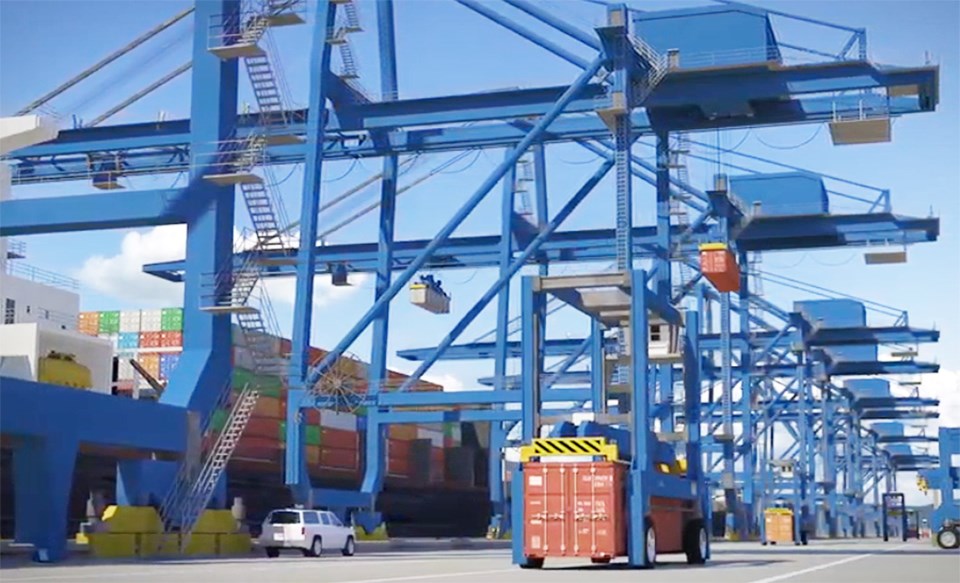Delta residents will likely know before the end of this year whether the federal government gives the go-ahead for a major new port facility at Roberts Bank.
Noting just a few final details are being sorted out, Robin Silvester, President and CEO of the Vancouver Fraser Port Authority, told the Optimist that the lengthy application process is nearing the end for Terminal 2 (T2).
If approved, T2 will provide a 50 per cent increase to the port’s container capacity, providing 2.4 million TEUs (20-foot-equivalent units) of additional capacity annually. The new three-berth container facility would be constructed on a man-made island adjacent to the existing port facility.
“That is our hope and expectation. We are in the short strokes in this process, and we are working through the last few issues. We expect the government to be in a position to make a decision in the fall or towards the end of this year. We hope and expect it will be a positive decision. We continue to believe it’s a positive project that can and should be approved,” said Silvester.
Getting the new facility built will be another lengthy process with construction likely to begin in 2026 and the facility ready for operation by the early 2030s, noted Silvester.
“Optimistically, that would be 2031 or, probably, 2032. The concern is the strength of growth in trade we’ve seen on the west coast of Canada. We’ve seen historical growth above the level we were forecasting and with the forecasts we have, which are external from several different sources, we foresee needing the capacity for Terminal 2 by the mid-to-late 2020s. We can’t imagine getting that capacity ready now until 2031 or 2032. We could start running out of capacity on the west coast and we hope we’ll be in the position to have Terminal 2 clearly underway, moving forward, ready to come in to relieve those capacity constraints,” he added.
As far as the latest volume numbers, the port notes its mid-year statistics for goods moving through the Port of Vancouver for cargo declined 11 per cent to 68.3 million from 76.4 million metric tonnes compared to the same period last year.
Not breaking the numbers down for individual facilities including Deltaport, the port authority points out the numbers reflect the impacts of a poor Canadian grain harvest, congestion caused by 2021 flooding in B.C., as well as global and national supply-chain challenges.
Silvester said grain was down 50 per cent due to the poor harvest, but it’s looking like this year will be much improved.
He said the port’s volume was about seven per cent down at one point this year, compared to 2021, but by August that had been reduced to four per cent.
“In context, in the two years of the pandemic, we saw about four years’ worth of growth, so we’re still ahead of where we though we’d be in the long-term forecast,” Silvester added.




